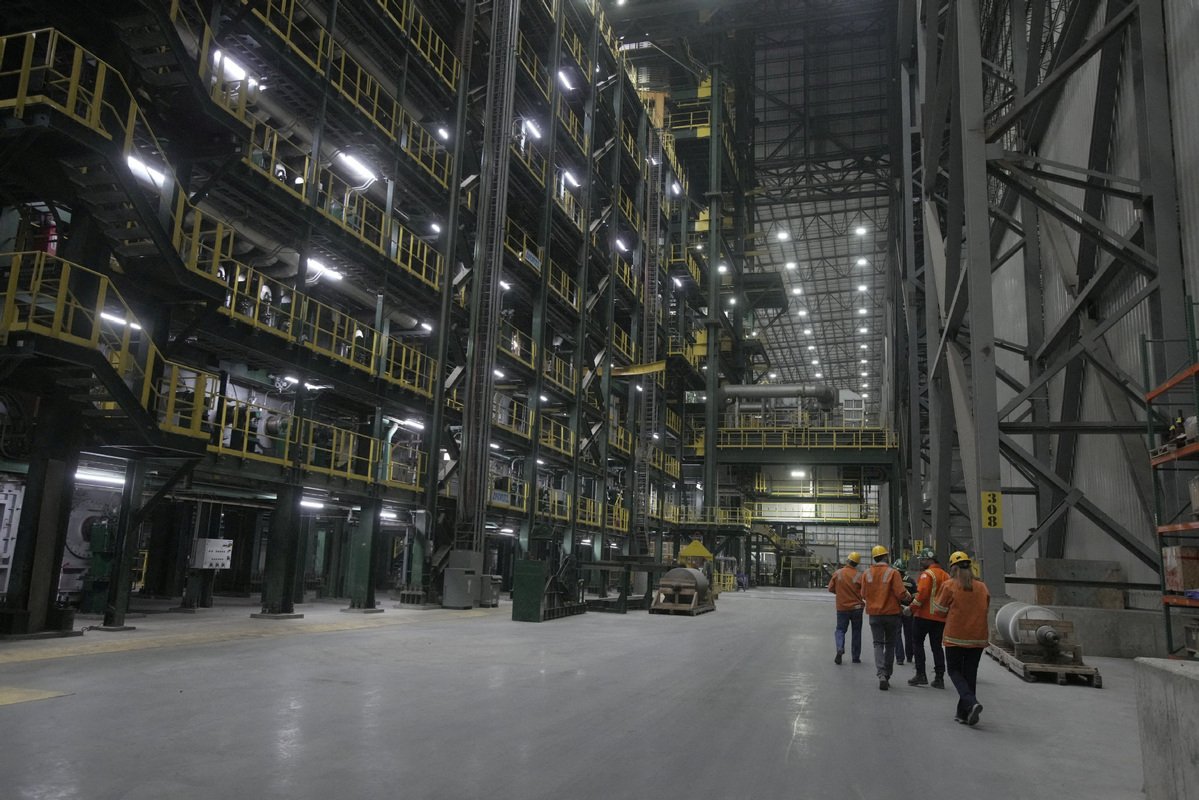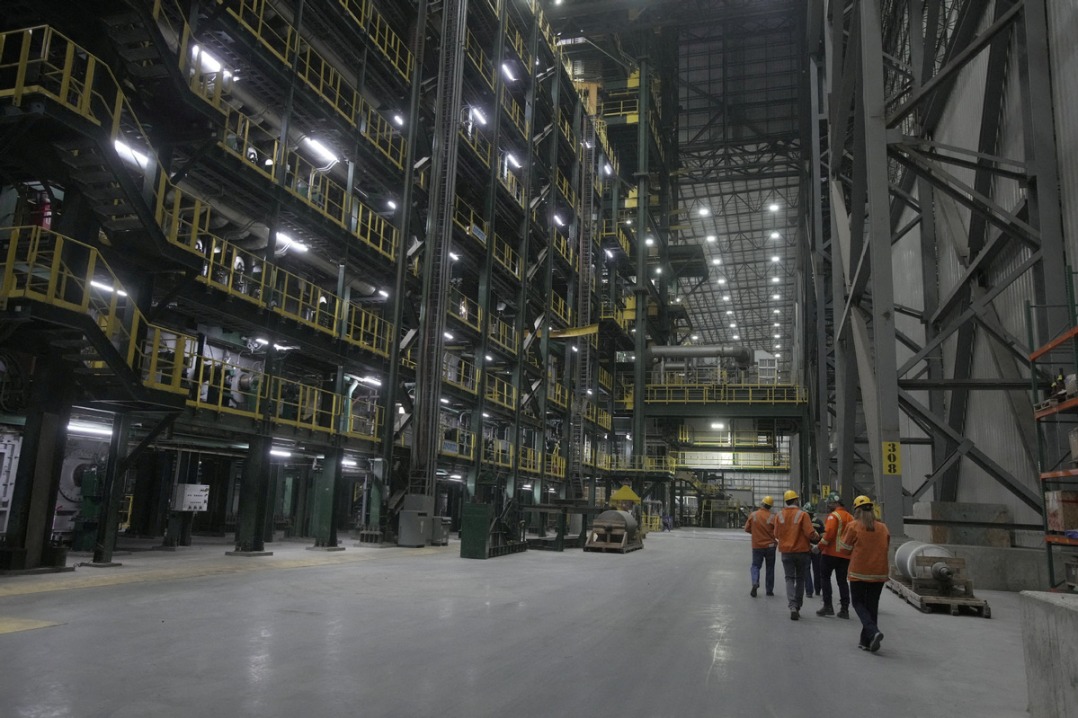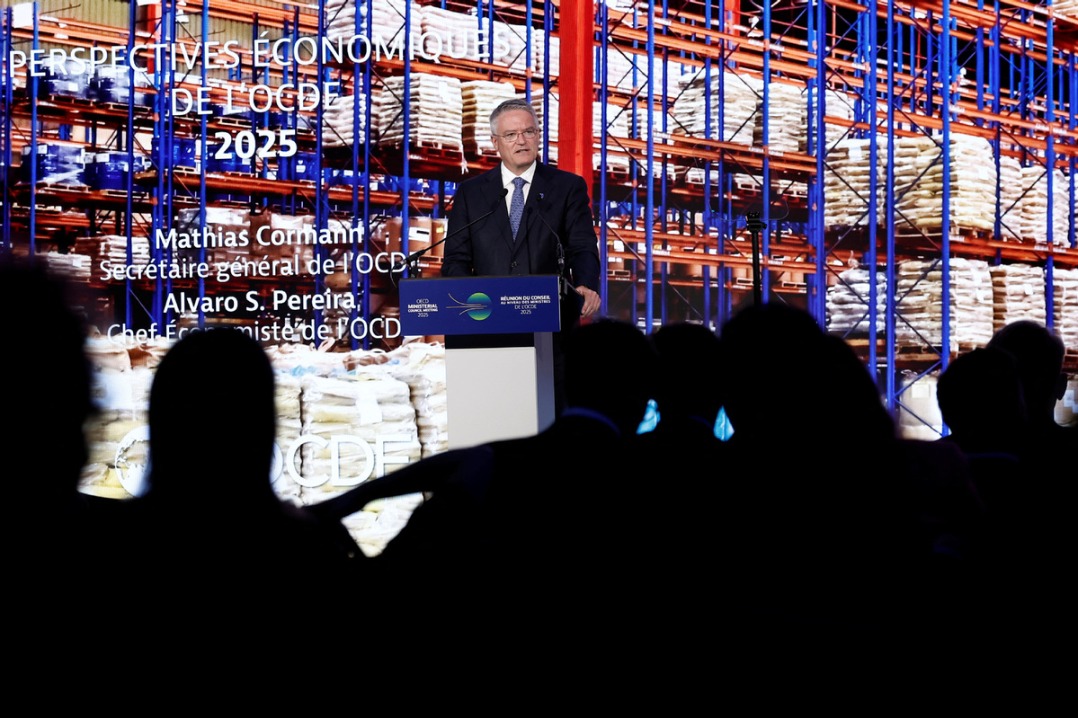Alarm over metals tariff hike
Washington's 50% duty can harm economies of both Canada and US: Experts


With US steel and aluminum tariffs set to double, economists and industry leaders are saying the levies could cause economic harm to both Canada and the United States while offering only narrow benefits.
Michael Devereux, an economics professor at the University of British Columbia, said US President Donald Trump's tariff plan "underscores the capricious nature of economic policy under this administration, which is terribly damaging both for the US and its trade partners".
Trump has announced that the US will double its current tariff rate on steel and aluminum imports from 25 percent to 50 percent, starting on Wednesday.
Devereux said the threat is not unexpected, "given the experience of the last four months in which tariffs have been announced randomly and without warning".
But he said the consequences for Canada could be dire if the tariffs are imposed and maintained.
"If implemented and kept in place for an extended period, this would be devastating for the Canadian steel and aluminum sector," Devereux said.
"Since the US market constitutes about 80 percent of Canada's exports in that sector … over 40,000 jobs in Ontario, Quebec, and some other provinces would be at risk," he told China Daily.
The current 25 percent tariff is already "crushing", Devereux said, and raising it to 50 percent would "make it completely uneconomic to export".
"Either the cost to US importers would go up or the return to Canadian exporters would fall, or a mix of both," he said.
Devereux said the impact wouldn't stop at Canada's border. "This would be incredibly costly for the US also, since metals imported from Canada are vital for many US manufacturing sectors," he said.
Devereux said the broader Canadian economy also would feel the shock.
"There would be broad job losses in the regions most affected by the tariffs, caused by the ancillary and supporting industry and service jobs that depend on the metals sector," he said.
Catherine Cobden, president and CEO of the Canadian Steel Producers Association, called the move a direct threat to Canada's economy and a disruption to cross-border supply chains.
"Steel tariffs at this level will create mass disruption and negative consequences across our highly integrated steel supply chains and customers on both sides of the border," Cobden said in a statement on Saturday.
She said the move "essentially closes the US market to our domestic industry for half of its production".
"It is vital that the government of Canada responds immediately to fully reinstate retaliatory steel tariffs to match the American tariffs and to implement as quickly as possible new tariffs at our own borders to stop unfairly traded steel from entering Canada," Cobden said.
"It is likely to make a renegotiation of the USMCA much more difficult," Devereux said, referring to the United States-Mexico-Canada Agreement, which replaced the North American Free Trade Agreement in 2020.
Retaliation expected
Devereux predicted that Ottawa would retaliate. "What kind and how much remains to be seen," he said.
He said the USMCA "will be renegotiated soon, and the steel and aluminum tariffs are likely to be addressed as part of that".
Trump's doubling of tariffs on imported steel and aluminum would bring benefits to a narrow slice of US industry, but at a broader economic cost, according to a US economist.
"Nothing surprises me anymore with Trump," said Alan Deardorff, a professor emeritus of public policy and economics at the University of Michigan. "A court tried to strike down some of his other tariffs, so he raised this one."
Speaking at a rally in Pittsburgh, Pennsylvania, on Friday, Trump said the steel tariff would help boost the local steel industry and national supply.
While the proposed 50 percent tariff may help US steel and aluminum producers, Deardorff said it would harm other sectors.
"The two metal industries in the US both benefit, including their workers, and the industries that use steel as an input … are hurt, including their workers," he told China Daily.
He said while the effect on total US or global output may not be major — because the measure targets only two sectors — the costs will be concentrated.
"It hurts all downstream industries, including especially autos and construction," he said.
Trump first imposed tariffs on metals in 2018 by invoking national security under Section 232 of the Trade Expansion Act. Despite recent legal challenges to other tariffs, Deardorff said that strategy likely would be used again.
"Trump got away with tariffs on steel and aluminum in 2018 under the national security law. That was not challenged under domestic law, so presumably it won't be this time," he said.
He said there are more efficient ways to support domestic metal industries.
"Almost any policy would be better economically," he said. While subsidies are "clearly preferable to tariffs on economic terms", their fiscal cost makes them politically difficult.
gaoyang@chinadailyusa.com

































